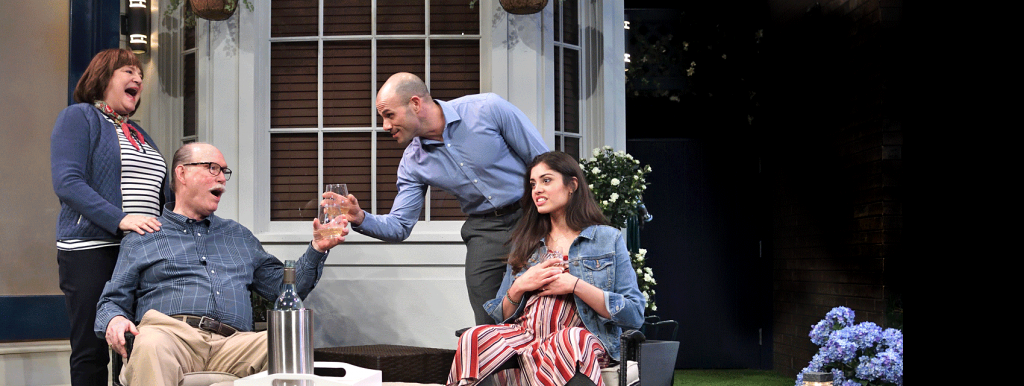
4/3/19
Welcome to Trinity Rep’s production of Little Shop of Horrors! I know many in our audience have been waiting for this production all season long, singing the songs in our lobbies and talking about the “irresistible” music and lyrics. Alan Menken’s score and Howard Ashman’s lyrics are utterly unforgettable, and this show is among the great American musicals of the late 20th century. It also continues Trinity Rep’s tradition of reexamining the American musical canon, begun in the mid-’90s by the then-artistic director, Oskar Eustis.
I have heard Oskar speak so persuasively about the subversive nature of the musical theater form, how musicals can push boundaries farther than straight plays, because of the nature of music. (And the man who was the driving force behind Hamilton would know!) Music is a vibrant text, one that insinuates itself in the hearer and deepens the experiential life of what might otherwise be too complicated to take in quickly. For example, think about the Emcee’s invitation at the opening number of Cabaret, as he welcomes us into the world of the play. He says, playfully, “We have no troubles HERE. Here, life is beautiful” – when we know that Nazi Germany is rising outside the door. That insistent, bouncy, familiar music of the opening of Cabaret takes us to a complicated, historical moment in an instant, in a way that spoken text alone could hardly achieve.
So it is with the score of Little Shop of Horrors, which is filled with so many memorable songs, each one better than the last. The music begins, and we are plunged into the doo-wop world of an American city, pre-gentrification, post-World War, and teetering on the edge of despair. The music is so immediately evocative of period and place that we don’t need any more specifics than they provide. It is the sound of that socially precarious moment, before the liberation movements of the ‘60s, and there is a monster inside the most innocuous of environments, a flower shop.
I know you’re thinking, it’s just a musical, there’s nothing more than meets the eye. But consider the horror movies of the 1950s and 1960s (on which this musical was based; a famously bad horror movie of the same name, by horror-schlockmeister Roger Corman). Those innocuous movies about monsters and creatures from outer space were reflective of the Cold War fears of Americans. In them, an unstoppable, insidious force comes from the outside and utterly destroys the orderly, peaceful way of life. With nuclear threat and Soviet communism everywhere in the public imagination, how could these movies be anything but a reflection of the zeitgeist?
Little Shop has the same kind of fears underpinning its innocuous façade. Set in the inner city in that unnamed but identifiable moment in time, the social unrest and economic decline are part of the story from the first, big number, “Skid Row.” Further, the image of the unnatural plant, nurtured by man, and its impact on the world is one that truly resonates in our time of global climate change. That’s the great, metaphorical virtue of monsters; they can be repurposed to reflect any moment.
Something to think about as you listen to this glorious music and take in Tyler Dobrowsky’s brilliant production. Or you can simply enjoy an awesome, man-eating plant. Either way, I know you’re in for a spectacular ride. I look forward to seeing you at the theater.
Curt Columbus
![]()
The Arthur P. Solomon and Sally E. Lapides Artistic Director
